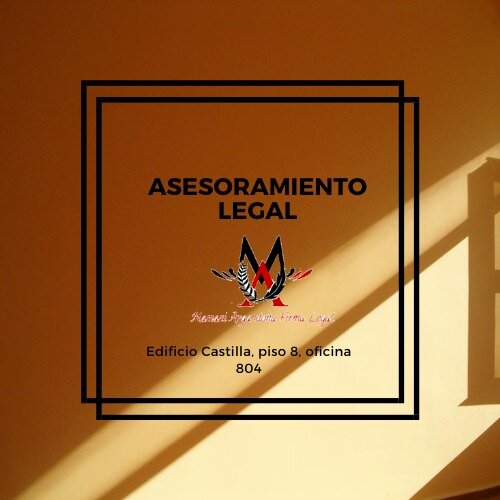Best Banking & Finance Lawyers in La Paz
Share your needs with us, get contacted by law firms.
Free. Takes 2 min.
List of the best lawyers in La Paz, Bolivia
About Banking & Finance Law in La Paz, Bolivia
Banking and finance law in La Paz, Bolivia covers all financial activities relating to personal and commercial transactions. These can include loan loans, mortgages, securities, investment banking, corporate finance and other financial transactions. Bolivia, including the city of La Paz, is emerging as an attractive destination for financial institutions and investors, with a rapidly developing ecosystem of banks, financial institutions, and fin-tech companies. All of these entities operate under the governance of several regulatory bodies, and abide by specific rules and regulations set by the national and local government.
Why You May Need a Lawyer
Understanding and navigating the financial and banking system in Bolivia can be complex due to the multitude of regulations and legal prerequisites. Individuals and corporations may require legal assistance when starting a new business, creating joint ventures, handling venture capital matters, managing investment portfolios, or dealing with disputes related to banking transactions. Legal advice is also crucial when interpreting and complying with financial regulations, handling bankruptcy cases, dealing with bank fraud, or navigating taxation and estate planning.
Local Laws Overview
Bolivian banking and finance law is governed by the Banking and Financial System Law 393 and the Central Bank of Bolivia Law 1670. These laws establish the rights and obligations of financial entities, the regulations of financial activities, and the role of regulating bodies such as the Financial System Supervision Authority and the Bolivian Central Bank. Bolivia also has regulations pertaining to foreign exchange and capital movements and specific provisions related to insurance, securities, and other forms of investment.
Frequently Asked Questions
What is the central governing body for banking & finance law in Bolivia?
The Financial System Supervision Authority (ASFI) and Central Bank of Bolivia (BCB) are primarily responsible for regulating banking and finance in Bolivia.
Can foreign entities invest in Bolivia's banking sector?
Foreign investment is allowed in Bolivia's financial sector, but it is subject to specific guidelines and limitations. It's recommended to seek legal advice to navigate this process effectively.
Is consumer protection present in Bolivia’s finance law?
Yes, Bolivia's finance law includes regulations meant to protect consumers, such as transparency requirements for financial institutions and provisions for dispute resolution.
Are there any enforcement measures for banking & finance law violations?
Bolivian law encompasses comprehensive enforcement provisions for violations, including but not limited to fines, imprisonment, and suspension of business licenses.
Do Bolivian laws regulate online banking and digital transactions?
Yes, Bolivian law encompasses regulations for electronic and digital banking services. This includes laws to combat cybercrime and to ensure the security and confidentiality of online transactions.
Additional Resources
For further information, you may wish to consult the Banking and Financial System Law, Central Bank of Bolivia Law, and the Investment Promotion Law. The websites of the Financial System Supervision Authority (ASFI) and Central Bank of Bolivia (BCB) may also serve as reliable sources of relevant legal information.
Next Steps
If you need legal assistance, consider engaging a lawyer who specializes in Bolivian banking and finance law. Be prepared to discuss your case in detail and gather all relevant documents to enable your lawyer to evaluate your situation accurately. It's also essential to understand your rights and obligations under the relevant laws to protect your own interests effectively.
Lawzana helps you find the best lawyers and law firms in La Paz through a curated and pre-screened list of qualified legal professionals. Our platform offers rankings and detailed profiles of attorneys and law firms, allowing you to compare based on practice areas, including Banking & Finance, experience, and client feedback.
Each profile includes a description of the firm's areas of practice, client reviews, team members and partners, year of establishment, spoken languages, office locations, contact information, social media presence, and any published articles or resources. Most firms on our platform speak English and are experienced in both local and international legal matters.
Get a quote from top-rated law firms in La Paz, Bolivia — quickly, securely, and without unnecessary hassle.
Disclaimer:
The information provided on this page is for general informational purposes only and does not constitute legal advice. While we strive to ensure the accuracy and relevance of the content, legal information may change over time, and interpretations of the law can vary. You should always consult with a qualified legal professional for advice specific to your situation.
We disclaim all liability for actions taken or not taken based on the content of this page. If you believe any information is incorrect or outdated, please contact us, and we will review and update it where appropriate.
Browse banking & finance law firms by service in La Paz, Bolivia
La Paz, Bolivia Attorneys in related practice areas.










